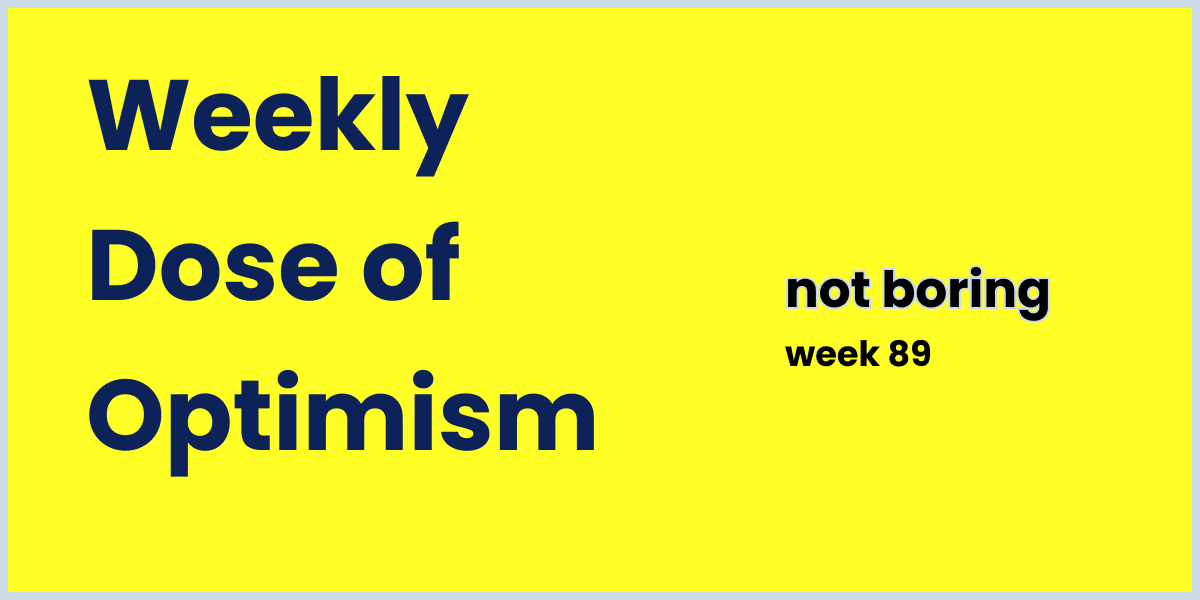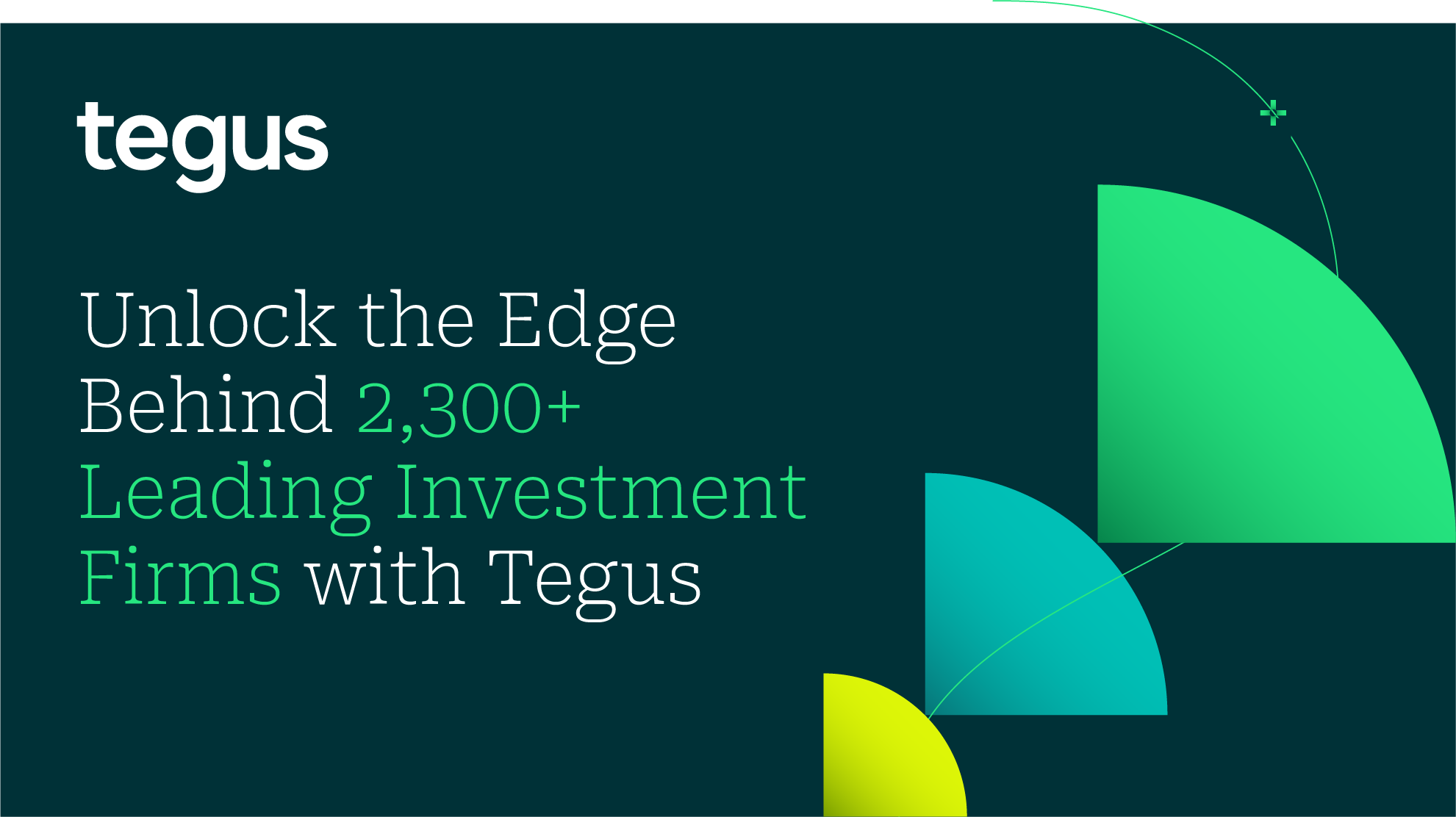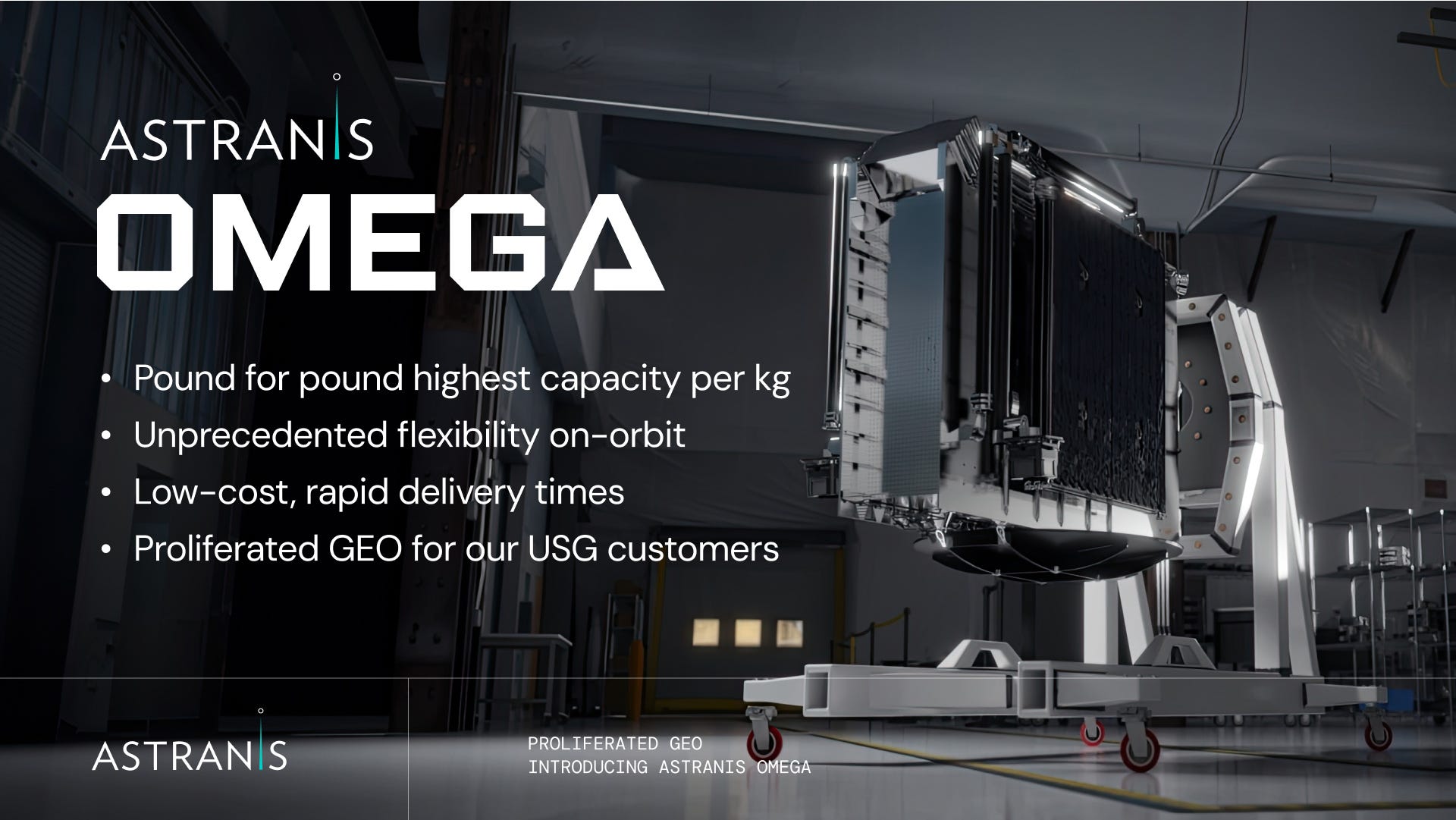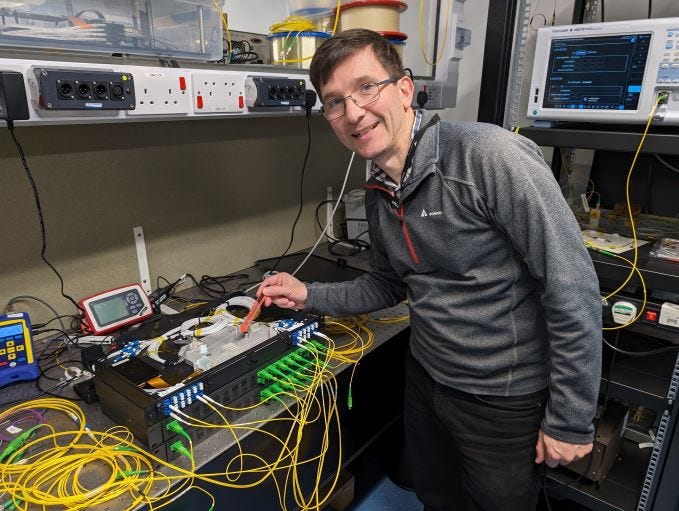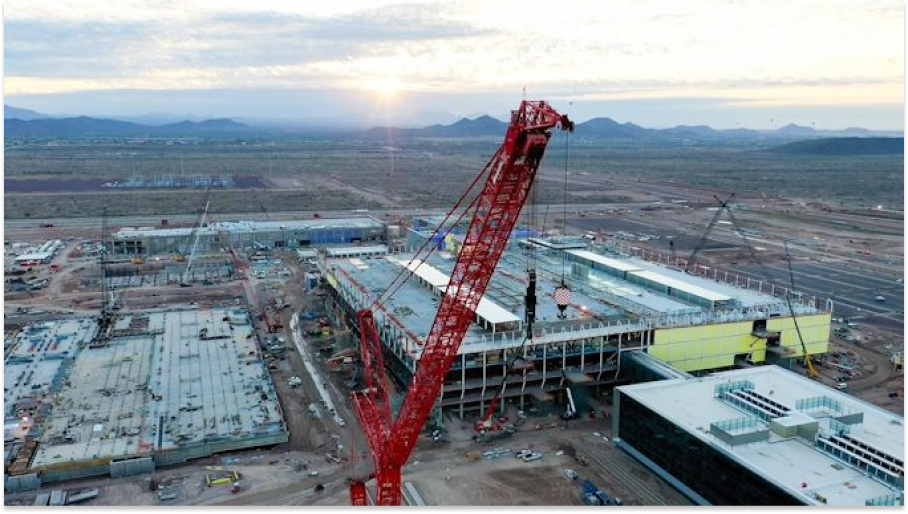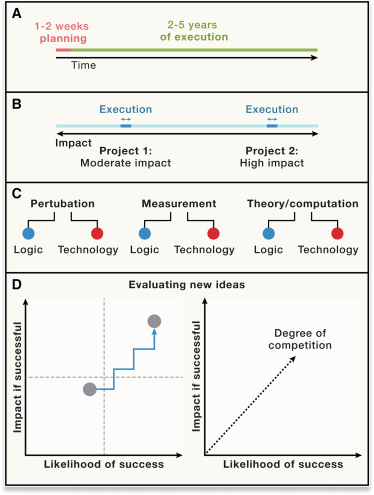Not Boring by Packy McCormick - Weekly Dose of Optimism #89
Weekly Dose of Optimism #89Mars, Astranis Omega, High Speed Broadband, TSMC, Orchid, Choosing ProblemsHi friends 👋, Happy Friday and welcome back to our 89th Weekly Dose of Optimism. After a weird week of weather events (earthquakes and eclipses), things are starting to normalize again. Normalization is a good thing, because around here a normal week usually means that at least five big, future-shaping things have happened. This week was no exception. Let’s get to it. Today’s Weekly Dose is brought to you by… Tegus
From Elon on X Earlier this week, Elon gave an update to SpaceX employees on his latest plans for colonizing Mars. Making humanity multi-planetary has always been part of the endgame for Elon and SpaceX, but those plans are starting to seem more and more likely, and Elon is starting to fill out his vision with more details. Elon now plans to colonize Mars with 1 million settlers and to do so by making trips from earth to Mars as routine as cross-country flights are today. This would really only be possible if Starship continues to hit its goals and becomes at least partially reusable…and who are we to say that won’t happen? Last month, SpaceX launched Starship, the largest spacecraft ever launched, and achieved orbital velocity. Launch number four is likely coming next month. And over the comings months and years, the company will need to hit a bunch of milestones on launches, flights, and reusability. But if all goes well, Musk now predicts that SpaceX could land a spacecraft on Mars over the next 3-4 years. He’s no stranger to ambitious, outlandish sounding timelines. At face value, this sounds like one of them. Then again, he’s also no stranger to accomplishing outlandish things on timelines no one thought were possible. So again, if Elon says we’ll be landing on Mars in 3-4 years, who are we to say that won’t happen? See y’all on the red planet soon! (2) Introducing: Astranis Omega From Astranis
For readers of Not Boring, likely your only interaction with the company Astranis is through two of its employees’ side projects. The company’s Vice President, Christian Keil, is behind the series First Principles, and its Head of Content, Jason Carman, puts out weekly videos on startups in S3. We feature their work often. But those are just their side projects. During their days, they work for one of the most impressive and important young space companies in the world (universe?): Astranis. Astranis makes and launches satellites that provide affordable, reliable broadband internet to people in places like Mexico, Argentina, the Philippines, and Thailand. Astranis’ services already provide internet for millions of end users and generates over a billion dollars of revenue for the company. If you’re thinking, isn’t that what Starlink does? You’re not totally wrong, but you’re also not right. Starlink takes a high-volume low-earth orbit (LEO) approach, while Astranis focuses on a more targeted geostationary orbit (GEO strategy) with smaller, lower-cost satellites than traditional operate that far out to provide affordable internet access to specific regions. Ultimately, this means Starlink serves a bunch of high willingness-to-pay customers and Astranis serves millions of customers in developing regions. Early this week, Astranis unveiled its next-gen satellite, Omega. Omega is pound-for-pound the most powerful satellite in GEO. It promises to deliver better throughput at lower prices for its customers —50Gbps of internet capacity, from space! That, in turn, means better, cheaper internet for more end users that would otherwise not have access, which, in turn, means more economic opportunity for millions of people around the home planet. Way to G(e)O, Astranis! (3) Aston University researchers send data 4.5 million times faster than average broadband From Aston University
And juuuuust as Astranis was making broadband affordable and accessible to all, some team of researchers out of the UK decided to move the goal posts on them. Researchers at Aston University have achieved a data transmission speed of 301 terabits per second using a single optical fiber, a rate 4.5 million times faster than the average UK home broadband. This record-breaking speed was attained by harnessing previously unused E-band and S-band wavelength bands in fiber optic systems, which significantly expanded the data-carrying capacity of existing networks. This breakthrough, if commercialized, would enable vastly improved internet speeds and support the growth of super data-intensive activities like streaming, cloud computing, and generative AI. Hopefully one-day Astranis will be able to beam down this type of super fast internet to anyone, anywhere, but for now, it seems like this will likely live in the lab for a bit. From TSMC
All these rockets, and satellites, and high speed networks are going to require lots of chips. And hopefully, we’ll be able to source those chips right here in the US of A. Thankfully, it seems like the U.S. TSMC project is back on track, with the Department of Commerce announcing a $6.6B grant to the company, an additional $5B in loans, and TSMC reporting that it’s opening a third fab in Arizona and that the original two fabs projects are fully on track. It’s funny how an additional ~$11B in funding can expedite timelines and improve outlooks! As Noah Smith pointed out, it seems as though early reports of delays and obstacles were essentially just bargaining chips from TSMC to secure additional funding. gg. Nevertheless, this is great news for American semiconductor manufacturing. Not only is the TSMC project on schedule with the original two fabs expected to be at full operational capacity this year, but it’s also expanding its footprint to a third fab. In total, TSMC is investing $65B into these projects which are expected to create 6,000 high-tech jobs and over 20,000 construction jobs. Jobs and economic stimulus aside, this is crucial from a geopolitical perspective. Reducing our reliance on chips produced in Taiwan (even if the alternative is those chips are produced by a American subsidiary of a Taiwaneese company in the U.S.), reduces our exposure to worst-case geopolitical outcomes. Plus, there's a certain pride and strategic advantage in having the capability to produce what is arguably the world's most pivotal product right here on American soil. U-S-A 🇺🇸 U-S-A 🇺🇸 U-S-A 🇺🇸 (5) This Woman Will Decide Which Babies Are Born Jason Kehe for Wired
Scary title. Great story. Wired covered Noor Siddiqui and her fertility startup Orchid. Orchid offers genetic testing services to prospective parents. Its goal is to provide information about the genetic risks associated with various diseases and conditions that could affect the parents’ future children. The company’s approach involves analyzing the genetic information of embryos created through in vitro fertilization (IVF) to assess their risk for over 1,200 diseases and conditions, which goes well beyond the traditional slate of preimplantation screenings. Interestingly, Noor herself is currently using* her company’s products (*I will refrain from saying dogfooding in this context because it feels weird.) Obviously, Orchid raises some eyebrows. A cynic might look at Orchid and think “designer babies” or some other worse term. The company does give its customers a fair amount of influencer over the outcomes of the children. But if you are to believe Noor, Orchid is less about producing the “perfect child” and more about reducing suffering. Or at least, being aware of that potential for suffering and making an informed choice. Can technologies be abused? Of course. And it’s up to us a society — social norms, regulations, laws — to make sure that such powerful technologies aren’t abused and we don’t homogenize into a singular designer baby monoculture. That’s a given! But at the same time, what is ethical about having a technology that can prevent the proliferation of terrible genetic diseases and not using it? I don’t know about you man — healthier babies sounds pretty damn good to me! Bonus: Problem choice and decision trees in science and engineering Michael Fischbach in Cell Packy here. If you’re reading these Weekly Doses every week and getting all fired up to go solve some really big, hard problems, take a few minutes this weekend to read Michael Fischbach’s piece on how to decide which problems to work on, and then take longer than you think you should to make that decision. That’s the first of many lessons from the paper: spend more time on the problem choice. I love this paper for a few reasons. First, Elliot works with Fischbach at Stanford and we’re buddies on Strava. Second, this is the strategy versus execution idea, applied at the individual level. If you’re reading this, you’re a smart, curious person. What you do with your talents matters. Take the time to make sure you’re working on the right thing. We’ll be back in your inbox on Tuesday. If you have some time this weekend, check out Tegus. Thanks for reading, Packy + Dan |
Older messages
Weekly Dose of Optimism #88
Friday, April 5, 2024
Quantum Leaps, Terraform, Parkinson's GLP-1, Eight Sleep, Kalshi, Crypto Goats, Hardest Geezer ͏ ͏ ͏ ͏ ͏ ͏ ͏ ͏ ͏ ͏ ͏ ͏ ͏ ͏ ͏ ͏ ͏ ͏ ͏ ͏ ͏ ͏ ͏ ͏ ͏ ͏ ͏ ͏ ͏ ͏ ͏ ͏ ͏ ͏ ͏ ͏ ͏ ͏ ͏ ͏ ͏ ͏ ͏ ͏ ͏ ͏ ͏ ͏ ͏ ͏ ͏
Astro Mechanica
Monday, April 1, 2024
The Aerospace Company ͏ ͏ ͏ ͏ ͏ ͏ ͏ ͏ ͏ ͏ ͏ ͏ ͏ ͏ ͏ ͏ ͏ ͏ ͏ ͏ ͏ ͏ ͏ ͏ ͏ ͏ ͏ ͏ ͏ ͏ ͏ ͏ ͏ ͏ ͏ ͏ ͏ ͏ ͏ ͏ ͏ ͏ ͏ ͏ ͏ ͏ ͏ ͏ ͏ ͏ ͏ ͏ ͏ ͏ ͏ ͏ ͏ ͏ ͏ ͏ ͏ ͏ ͏ ͏ ͏ ͏ ͏ ͏ ͏ ͏ ͏ ͏ ͏ ͏ ͏ ͏ ͏ ͏ ͏ ͏ ͏ ͏ ͏ ͏ ͏ ͏ ͏ ͏ ͏ ͏
Weekly Dose of Optimism #87
Friday, March 29, 2024
Young Immune Systems, Terraform, Pipedream, Foodborne Cancer,Energy Transition ͏ ͏ ͏ ͏ ͏ ͏ ͏ ͏ ͏ ͏ ͏ ͏ ͏ ͏ ͏ ͏ ͏ ͏ ͏ ͏ ͏ ͏ ͏ ͏ ͏ ͏ ͏ ͏ ͏ ͏ ͏ ͏ ͏ ͏ ͏ ͏ ͏ ͏ ͏ ͏ ͏ ͏ ͏ ͏ ͏ ͏ ͏ ͏ ͏ ͏ ͏ ͏ ͏ ͏ ͏ ͏ ͏ ͏ ͏ ͏ ͏
Weekly Dose of Optimism #86
Friday, March 22, 2024
Nueralink, Pig Liver, Intel, Saudi AI Fund, Direct File,Unitree ͏ ͏ ͏ ͏ ͏ ͏ ͏ ͏ ͏ ͏ ͏ ͏ ͏ ͏ ͏ ͏ ͏ ͏ ͏ ͏ ͏ ͏ ͏ ͏ ͏ ͏ ͏ ͏ ͏ ͏ ͏ ͏ ͏ ͏ ͏ ͏ ͏ ͏ ͏ ͏ ͏ ͏ ͏ ͏ ͏ ͏ ͏ ͏ ͏ ͏ ͏ ͏ ͏ ͏ ͏ ͏ ͏ ͏ ͏ ͏ ͏ ͏ ͏ ͏ ͏ ͏ ͏ ͏ ͏
Techno-Optimistic Media
Tuesday, March 19, 2024
A Not Boring x First Principles Guide to Modern Startup Storytelling ͏ ͏ ͏ ͏ ͏ ͏ ͏ ͏ ͏ ͏ ͏ ͏ ͏ ͏ ͏ ͏ ͏ ͏ ͏ ͏ ͏ ͏ ͏ ͏ ͏ ͏ ͏ ͏ ͏ ͏ ͏ ͏ ͏ ͏ ͏ ͏ ͏ ͏ ͏ ͏ ͏ ͏ ͏ ͏ ͏ ͏ ͏ ͏ ͏ ͏ ͏ ͏ ͏ ͏ ͏ ͏ ͏ ͏ ͏ ͏ ͏ ͏ ͏ ͏ ͏ ͏
You Might Also Like
🔮 $320B investments by Meta, Amazon, & Google!
Friday, February 14, 2025
🧠 AI is exploding already!
✍🏼 Why founders are using Playbookz
Friday, February 14, 2025
Busy founders are using Playbookz build ultra profitable personal brands
Is AI going to help or hurt your SEO?
Friday, February 14, 2025
Everyone is talking about how AI is changing SEO, but what you should be asking is how you can change your SEO game with AI. Join me and my team on Tuesday, February 18, for a live webinar where we
Our marketing playbook revealed
Friday, February 14, 2025
Today's Guide to the Marketing Jungle from Social Media Examiner... Presented by social-media-marketing-world-logo It's National Cribbage Day, Reader... Don't get skunked! In today's
Connect one-on-one with programmatic marketing leaders
Friday, February 14, 2025
Enhanced networking at Digiday events
Outsmart Your SaaS Competitors with These SEO Strategies 🚀
Friday, February 14, 2025
SEO Tip #76
Temu and Shein's Dominance Is Over [Roundup]
Friday, February 14, 2025
Hey Reader, Is the removal of the de minimis threshold a win for e-commerce sellers? With Chinese marketplaces like Shein and Temu taking advantage of this threshold, does the removal mean consumers
"Agencies are dying."
Friday, February 14, 2025
What this means for your agency and how to navigate the shift ͏ ͏ ͏ ͏ ͏ ͏ ͏ ͏ ͏ ͏ ͏ ͏ ͏ ͏ ͏ ͏ ͏ ͏ ͏ ͏ ͏ ͏ ͏ ͏ ͏ ͏ ͏ ͏ ͏ ͏ ͏ ͏ ͏ ͏ ͏ ͏ ͏ ͏ ͏ ͏ ͏ ͏ ͏ ͏ ͏ ͏
Is GEO replacing SEO?
Friday, February 14, 2025
Generative Engine Optimization (GEO) is here, and Search Engine Optimization (SEO) is under threat. But what is GEO? What does it involve? And what is in store for businesses that rely on SEO to drive
🌁#87: Why DeepResearch Should Be Your New Hire
Friday, February 14, 2025
– this new agent from OpenAI is mind blowing and – I can't believe I say that – worth $200/month
